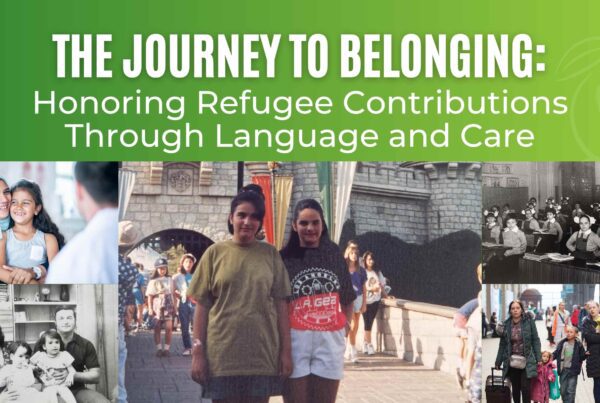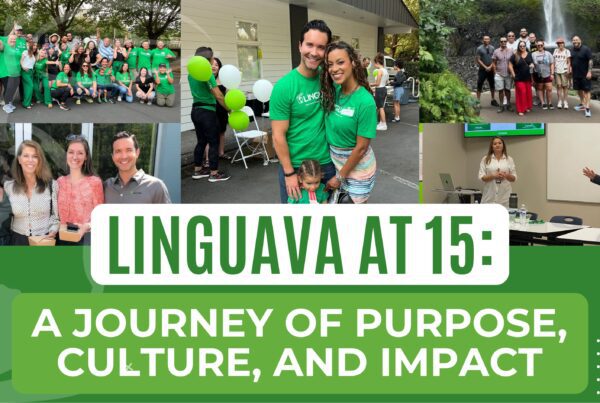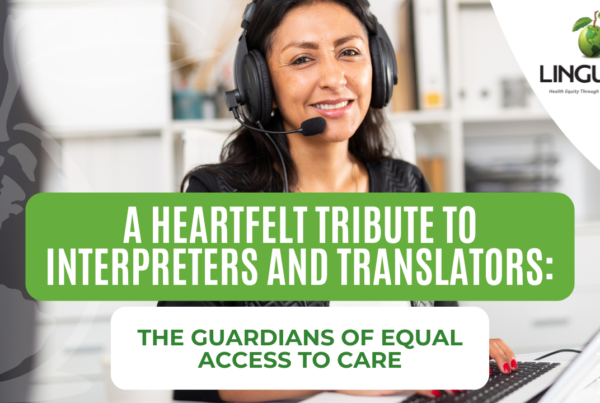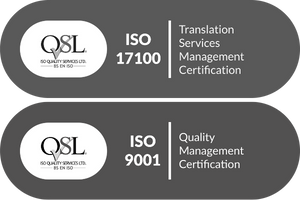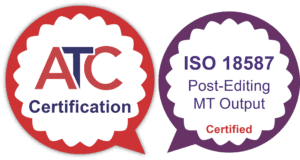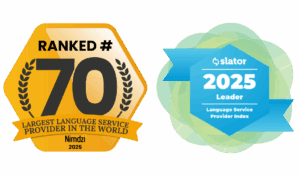Imagine you are in a foreign country where another language is spoken that you do not know. Imagine going to a medical appointment and not being able to understand the majority of what the provider says because no interpreter was provided and the medical staff only speak a few words of your language if any at all. For more than 20% of people in the United States, this is a common reality.
Medical interpreters play an extremely valuable role to help improve patient experience and health outcomes. Every interpreter has their own story about how they began interpreting but most share the same purpose…helping a patient receive meaningful language access which ultimately helps them improve their health outcomes and receive health equity. Linguava CEO David Brackett had the opportunity to sit down with Swahili medical interpreter Frank Mollel who shares a bit about his story and the value of interpretation.
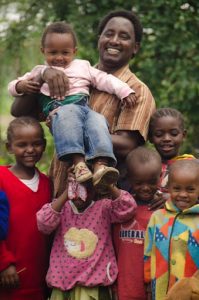
Q: How did you get started as a Swahili medical interpreter?
A: I was drawn to interpretation work seven years ago after helping a friend who had recently immigrated to the U.S. She was a refugee from Somalia and needed me to interpret for her during a medical appointment. The nurse shared that I had done well and needed more Swahili interpreters; she encouraged me to serve as a medical interpreter. After I got home that day, I immediately looked into interpreting. I later called some agents and have been interpreting ever since.
Q: What do you enjoy the most about working as a medical interpreter?
A: As someone who moved to the U.S., I know first hand what it was like to struggle to understand English and maneuver the healthcare system; it takes an emotional toll. I enjoy helping families and individuals feel confident they can understand important information about their health. Having someone who speaks their language enables them to feel comfortable and get proper access to medical care at their appointments.
Q: Can you please share the most impactful experience you have had as a medical interpreter?
A: I have had so many beautiful experiences with a lot of families. Still, one particular family I want to share about today is the family of a single father of three, one son and twins. He lost his wife three days before traveling to America. He came here with so much pain, and he needed all kinds of emotional support. Neither he nor his kids spoke English, and they had no idea what to do, as they came straight from a Tanzanian refugee camp. I met the family for their first medical screening appointment. After interpreting for the first time, he requested that I be the interpreter for all his family’s appointments. Since then, I have been with his family for many appointments. He’s doing great, the kids are working, and some are even going to school.
I was so happy that I could link them with the health care providers they needed by creating a space of peace and trust. This experience is only one of many that bring me joy and pride in being a Qualified Swahili interpreter.
Q: What is one thing medical providers could better understand when working with a Limited English proficient patient?
A: Medical providers need to understand that clients often have a different paradigm from which they are operating. It’s essential to allow the interpreter time to explain to the client so they will understand. Providers must ask questions and appreciate that clients come from different cultures and backgrounds. Not only are they trying to understand words that can have multiple meanings, but the context in which they are used. Interpreters need to clarify both the words and the cultural context to both the provider and client. A good example of this that Masaai men do not eat vegetables or fish. Additionally, Masaai men are not supposed to cry in front of women, no matter the circumstance. Many providers do not know these types of things which can be important to their health care.
Q: I know you started a non-profit organization. Can you share what drove you to launch it?
A: Hardship is no stranger to me having grown up in a socioeconomically disadvantaged family in Tanzania. I know what it is like to be hungry. I know struggle. And yet, as a young boy, I was aware of the fact that girls and young women from my community were suffering more. And my mom and I began to act out of love for our sisters. Though we had little, we took in orphans whose parents had died from AIDS and we provided housing, food, and some support for education. The consequences of inaction were too great. If we had not acted, these young women would be experiencing houselessness, food security issues, no access to education, and forced early marriages.
The Heart of Africa Foundation, empowers girls and women in Tanzania to overcome the challenges of being born female by supporting their educational, emotional, physical, and social well-being. It is a huge passion of mine.
Our mission is to help young girls and women realize their power, voice, choice, and freedom.
Our focus is to invest in the education, care, and economic opportunities for girls and women.
Our vision is to create programs that inspire others to act and make a difference for the young girls and women in Tanzania.
Whether I am here in Portland, Oregon working as a Swahili interpreter or traveling for my non-profit organization, I know that I am making a difference in people’s lives. I know that I am helping people have a stronger voice that otherwise would not have. – Frank Mollel
For anyone interested in participating or learning more about Frank’s non-profit, please connect directly with him through the Heart of Africa Foundation website.
To find a Swahili Medical Interpreter, learn more about Linguava, or our interpretation or translation services, you can contact us or email us at clientrelations@linguava.com.

